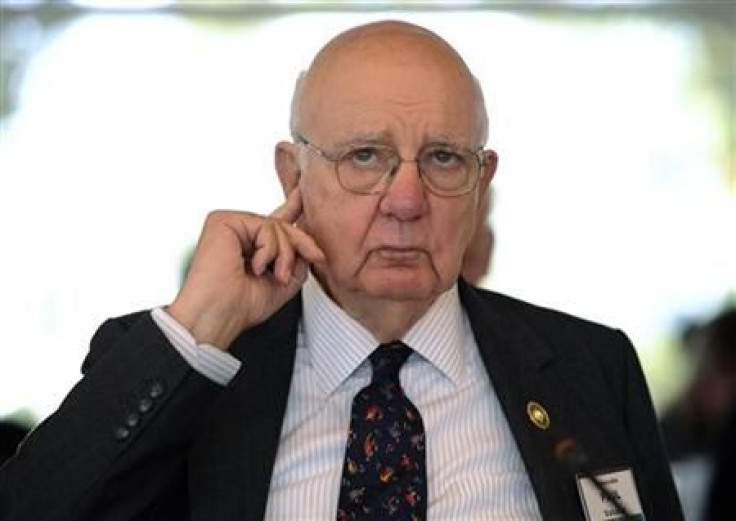Volcker Rule Draft Gives Banks Ability to Hedge

A draft proposal of the Volcker rule that cracks down on banks' proprietary trading gives firms flexibility to hedge risk, and sets stringent limits on such trading beyond U.S. borders to address fears the rule will put U.S. firms at a disadvantage.
The draft posted online by The American Banker publication and widely circulated by the financial industry on Wednesday also contained an exemption for market makers, but an industry group immediately said it was concerned the exemption may not be broad enough.
The Volcker rule, named after former Federal Reserve Chairman Paul Volcker, is part of last year's Dodd-Frank financial oversight law, designed to avoid a repeat of the 2007-2009 financial crisis.
It aims to prevent banks from recklessly engaging in risky trades by prohibiting them from trading for their own profit in securities, derivatives and certain other financial instruments.
It will also prohibit banks from investing in, or sponsoring, hedge funds or private equity funds.
The ban is one of the most controversial parts of Dodd-Frank, and a key issue has been how regulators will craft exemptions included in the law.
Both supporters and opponents of the ban were critical of how regulators are handling some these exemptions based on a roughly 200-page draft rule that was dated Sept. 30.
Kenneth Bentsen, executive vice president of public policy and advocacy at the Securities Industry and Financial Markets Association, raised concerns about whether the exemption is too narrow for trades intended to make markets for customers.
"Upon first glance it seems to have some complex and potential burdensome provisions that may impede Congress's stated intent to allow for traditional market-making activities, and sponsorship of funds," he said in a statement.
A supporter of the ban, who requested anonymity to discuss the rule before it is released next week, took aim at how regulators dealt with the exemption for hedging against risk related to trades done for customers.
Supporters of the Volcker provision contend too broad of a hedging exemption could leave room for banks to engage in proprietary trading.
At issue is whether this hedging can be done on a portfolio basis or tied more closely to specific trades.
The draft rule would allow hedging against portfolio risks, which is common now on Wall Street.
"That's crap," the supporter said.
U.S. banking regulators will discuss the rule at a meeting of the Federal Deposit Insurance Corp board next Tuesday. The draft says the public will be allowed to comment on the rule until Dec. 16.
An FDIC spokesman declined to comment on the draft posted online.
The rule will mostly impact the largest banks such as Goldman Sachs Group Inc, Bank of America Corp and JPMorgan Chase & Co.
The proposed rule narrowly tailors the exemption for proprietary trading done outside of the United States, to address fears that the crackdown will send trading activity offshore, harming U.S. firms and capital markets.
The proposal lays out four conditions that a transaction done outside the United States has to meet to escape the Volcker rule restrictions.
They are: the transaction is conducted by a bank not organized under U.S. laws, no party to the transaction is a U.S. resident, no bank employee involved in the transaction is physically located in the United States, and the transaction is executed wholly outside the United States.
For market-making activity, the draft proposal lays out six criteria that banks must meet for an exemption to the rules, including confining revenue to fees, commissions, and the spreads between bid and ask prices.
Market-makers are key to ensuring market liquidity by standing ready to buy or sell on behalf of customers. Many dealers fear that the Volcker rule will prevent them from performing market-making functions.
Other criteria set out in the draft for a market-making exemption include having a comprehensive compliance program, engaging in bona fide market making activity, and being sure not to exceed the reasonably expected near-term demands of clients.
Banks will also need to make sure they are following the proper registration rules under federal commodity and securities laws, and they must have compensation practices in place to prevent undue risk-taking.
(Reporting by Dave Clarke, Karey Wutkowski and Sarah N. Lynch; Editing by Tim Dobbyn and John Wallace)
© Copyright Thomson Reuters 2024. All rights reserved.











